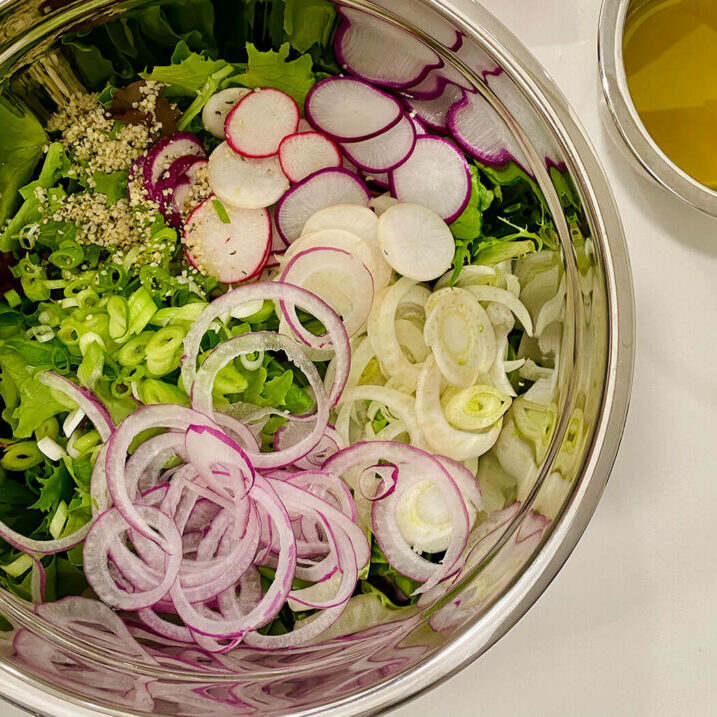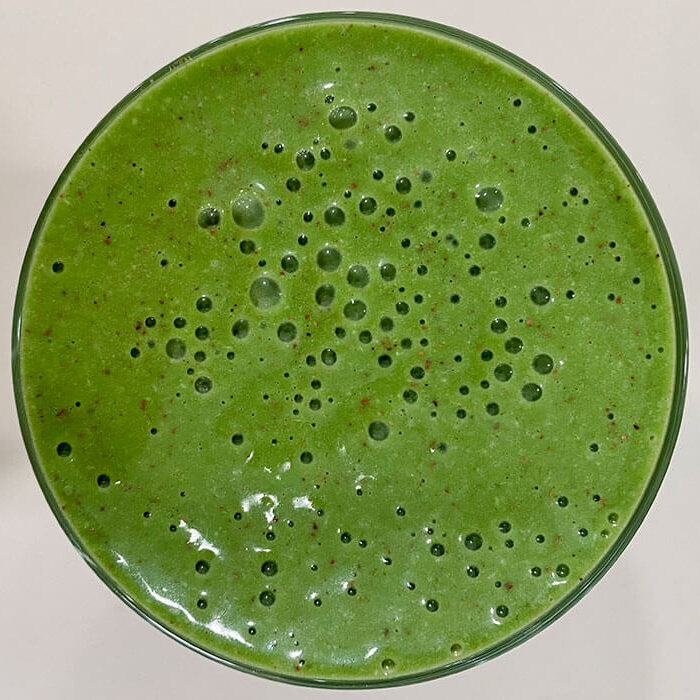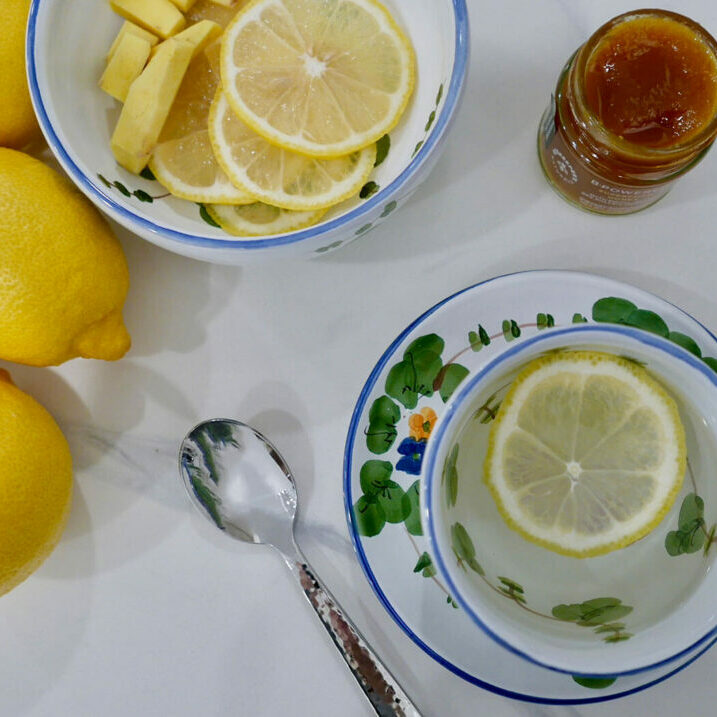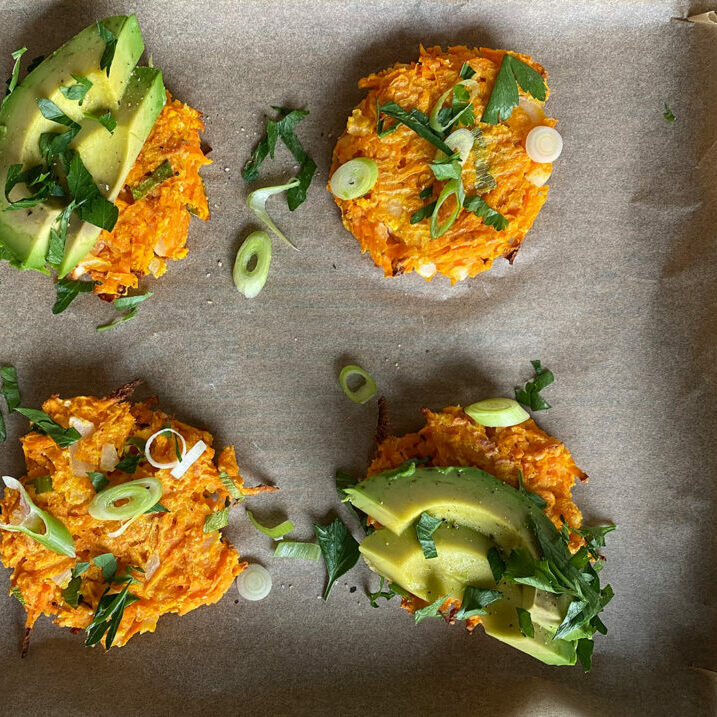The meaning of health is often misunderstood and sometimes undermined. Jenna Templeton, a health educator, and freelance science writer says, “Health is often understood as the absence of disease or sickness. While this definition is valid, it lacks the comprehensiveness of a broader approach. So start assessing your holistic health and wellness on a wider spectrum. This means wellness depends on more factors than simply avoiding the flu each year” (Templeton, 2018).
Maintaining our health, even if no issues are currently present, is just as important as treating/managing disease or imbalance. Health isn’t just about being free of disease or health issues, more importantly, it’s about preventing, overcoming, and healing the body from these obstacles through diet, lifestyle, environment, and biochemical individuality.
NOURISH THE BODY THROUGH DIET
Fuel the body with an abundance of nutrients highlighting plant-based sources. Choose WHOLE unprocessed foods that are organic and seasonal/local when possible. This will provide higher nutrient content while also minimizing exposure to toxins and other potential irritants.
Where Do I Begin?
Eat the rainbow by consuming a diverse variety of colorful fruits and vegetables. Having a diverse range of plants in your diet will provide you with different nutrients essential to optimal health.
SOME examples include:
Collard greens, seaweed, spinach, kale, asparagus, artichoke, radish, tomato, arugula, white potatoes, sweet potatoes, beets, squash, bell pepper, fennel, carrots, brussel sprouts, swiss chard, bok choy, mixed greens, avocado, mushrooms, blueberries, raspberries, cherries, papaya, banana, pomegranate, mango, ginger, turmeric, lemon, parsley, and cilantro. *Try and go with what’s in season!
…………………………………………………………
Get adequate amounts of macronutrients (proteins, carbohydrates, and fats) through whole food sources.
SOME examples include:
Proteins: Wild-caught fish, organic/pasture-raised eggs & chicken, grass-fed beef & bone broth, hemp seeds, chia seeds, pumpkin seeds, almonds, spirulina (fresh is best), quinoa, buckwheat, lentils, chickpeas.
Carbohydrates: Starchy root vegetables, leafy greens, broccoli, cauliflower, tomato, artichoke, unprocessed grains, high-quality sourdough, legumes, and fruit (berries especially).
Fats: Coconut, avocado, extra virgin olive oil, olives, nuts/seeds, wild-caught fish, and organic/pasture-raised eggs.
…………………………………………………………
A healthy, diverse gut microbiome is essential to our overall health, especially when it comes to optimizing digestion and immunity. Incorporate fermented foods, PREbiotics, and fiber to support the gut microbiome. Supplement with a probiotic & prebiotic if necessary and prescribed by a licensed physician/professional. NOTE: PREbiotics help “feed” the PRObiotics & hence produce a byproduct called POSTbiotics. All prebiotics are fiber, but not all fiber is prebiotic.
A FEW whole food examples:
Fermented Foods: Sourdough, dairy-free yogurt, tempeh, miso, kimchi, sauerkraut, and other fermented vegetables.
PREbiotics: Sweet potatoes, shiitake mushrooms, raw dandelion greens, jicama, white potatoes, seaweed, flaxseeds, wheat bran, whole oats, barley, jerusalem artichoke, raw chicory root, under-ripe banana, raw onions, and raw garlic.
Fiber: Chia seeds, flax seeds, berries, coconut, figs, broccoli, brussel sprouts, artichoke, chickpeas, lentils, nuts, and avocado.
PRObiotics: Supplement when necessary & prescribed by a licensed physician/professional.
DE-STRESS
Our mental health has a direct effect on our internal health. Chronic stress contributes to inflammation, which affects the physical and psychological systems compromising our ability to thrive properly. The risk for health issues and disease is exponentially increased by chronic stress, including compromised immunity, digestive disorders, heart attack, heart disease, stroke, etc.
Try these techniques:
Meditation, infrared sauna, massage, yoga, exercise, socializing, breathwork, calming herbs, and essential oils. Do what works best for you, it doesn’t have to be one of these examples!
REDUCE TOXIC LOAD
Environmental triggers such as toxic exposure can be extremely detrimental to our health; causing and contributing to numerous different health issues. Toxic exposure can come in a variety of different forms, some common ones include food, air, water, personal care, cleaning products, and cookware.
What’s the alternative?
Choose organic and seasonal/local WHOLE foods, drink filtered water, swap conventional personal care and cleaning products for certified non-toxic. *Always be mindful of what you’re putting into and onto your body.
PERSONALIZE YOUR APPROACH
Every individual’s body is crafted differently, therefore requiring personalized care. Biochemical individuality (our unique genetic makeup) will affect nutrient absorption, immune function, allergies, preferences, etc. (Junger, 2009).
How do I determine what works best for me?
Lab Testing: There are various different tests available to aid in pinpointing your specific needs by determining things like nutrient deficiencies/levels in excess, absorption, bacteria, pathogens, fungi, viruses, parasites, hormonal imbalance, autoimmunity, thyroid function, liver function, and much more. *Be sure to find a licensed physician/professional.
Try an Elimination Diet: With the right guidance/protocol, this is one way to test yourself for food sensitivities/intolerances.
Trial & Error: If something doesn’t work for you, move on and try something new. We are all unique, not everything will work for everyone.
References
1. Bulsiewicz, W. (2020). Fiber Fueled: The Plant-Based Gut Health Program for Losing Weight, Restoring Your Health, and Optimizing Your Microbiome. New York, New York: Avery.
2. Junger, A., & Greven, A. (2012). Clean: The Revolutionary Program To Restore The Body’s Natural Ability To Heal Itself (Updated ed.). New York, New York: HarperCollins.
3. Levy, J. (2017, March 26). 3 Macronutrients You Need and Top Food Sources.
4. Public Assessments & Health Consultations | ATSDR. (2020).
5. Templeton, J. (2018, May 4). The 8 Pillars of Holistic Health and Wellness.
6. Varvogli, L., & Darviri, C. (n.d.). Stress management techniques: evidence-based procedures that reduce stress and promote health | Insight Medical Publishing.






